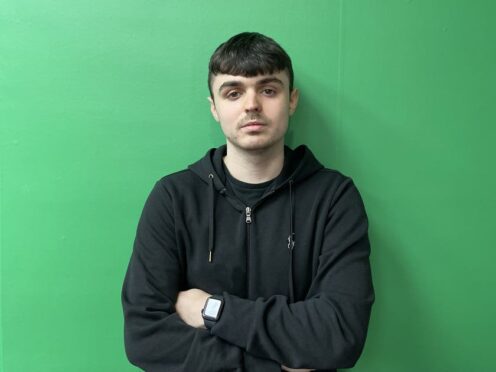
A young man who has previously been homeless has encouraged others who are homeless to register to vote to change the system for the better.
A new service allows homeless people to use a post office of their choice as an address to receive their ballot paper.
The post office they choose would then be their chosen constituency, it is understood.
James Flanagan, a 20-year-old Dubliner who has been homeless, said the homelessness crisis in Ireland is getting “worse and worse”, but “with the power to vote, we can fix it”.
He added: “As a young person who struggled with homelessness in the past, it’s amazing to be able to actually have a voice and to be able to be recognised in the community.
“It’s amazing to be able to vote and be able to have that voice.”
Advocacy groups have argued that as a growing cohort of people, those who are homeless could make the difference between who wins a seat in parliament and who does not.
There were 13,531 people in homeless accommodation in January, according to the latest official figures, 9,504 of whom were adults.
Focus Ireland estimates using official figures that there are 50,000 people who have been homeless in recent years.
Mike Allen, director of advocacy, communications and research at Focus Ireland, said: “They are significantly higher than the sorts of numbers which at the end of the count that make a difference between people getting elected or not getting elected.
“The difference that those people who are experiencing homelessness can make can be very significant in elections if they vote.”
He said people who are homeless have faced two major barriers in trying to vote: how complicated the electoral register is, and the need for an address.
Ireland’s new electoral authority, the Electoral Commission, aims to introduce “very significant radical changes” in the way the electoral register works, he said, which it is hoped will make it easier for marginalised people, including people who are homeless, to register and use their vote.
“The importance of voting cannot be overstated” @ElecCommIRL Chief Executive Art O’Leary speaking in the GPO at today’s @FocusIreland Registration Drive for people who are homeless to get registered to vote. #YourVoteYourVoice pic.twitter.com/nBu1GxensI
— An Coimisiún Toghcháin, The Electoral Commission (@ElecCommIRL) March 26, 2024
“Now we have the possibility of getting voters registered relatively simply,” Mr Allen said.
“The second major change is the An Post initiative of Address Point, because even if you got on the register before, you couldn’t give an address.
“Now through a really innovative measure, it is possible for somebody to register using the Electoral Commission software and getting an address through the An Post Address Point system. Those are really significant changes.
“What we’ve got between those two systems in Ireland is well ahead of what anybody else has got in Europe, both in terms of the electoral legislation and terms of initiatives.”
Sister Bernadette MacMahon, who has been honoured for her contribution to the community and voluntary sector, which included visiting communities in the 1990s encouraging people to vote, said she was “so happy”.
She said: “If you’re working with people who are alienated from the electoral process it’s really not enough to tell them to vote.
“For some it’ll get them going, but for many others, there’s a history of them being let down by politicians, and being let down by the system.”
Anna McHugh, of An Post, said they launched the Address Point service in 2018.
She said: “We’d love that there was no reason to have an Address Point service, but we’re very proud that it has made a huge difference to people’s lives.”
Ms McHugh said it provides the service “in a very dignified and private way” so that people can receive letters and have a secure address “that isn’t stigmatised, that looks like any other address”.
Louise Bayliss, campaign co-ordinator at Focus Ireland, said that during a pilot voter registration drive among young people who are homeless, they saw how effective the scheme could be.
She said: “This young lad there was really nice and was really powerful and said ‘I know exactly who I’m going to vote for… the one who looks after young people.’
“And I thought it was just so powerful.”
Chief executive of the Electoral Commission Art O’Leary said: “The numbers that we’re talking about here, 10,000 people currently in homelessness, that’s one third of a seat in Dail Eireann. So together, you are a very, very powerful voice that should be listened to.
“We ran a campaign in the first couple of months of this year for people to check the register and to get themselves on the register in advance of the referendums that we had in March, and 185,000 people either signed up for the first time, or updated their details.
“We want to continue with this great work, and we won’t stop until every single person who should be on the register is on the register.”

Enjoy the convenience of having The Sunday Post delivered as a digital ePaper straight to your smartphone, tablet or computer.
Subscribe for only £5.49 a month and enjoy all the benefits of the printed paper as a digital replica.
Subscribe